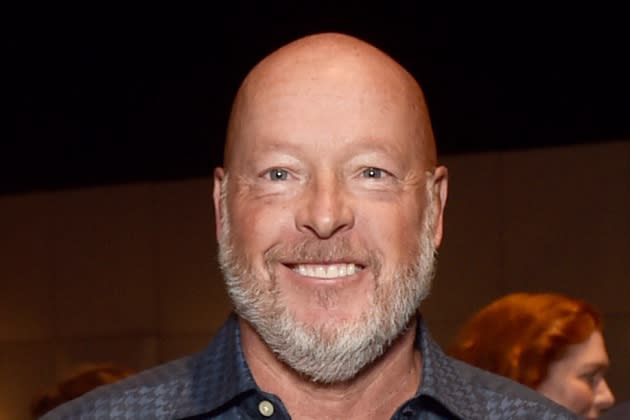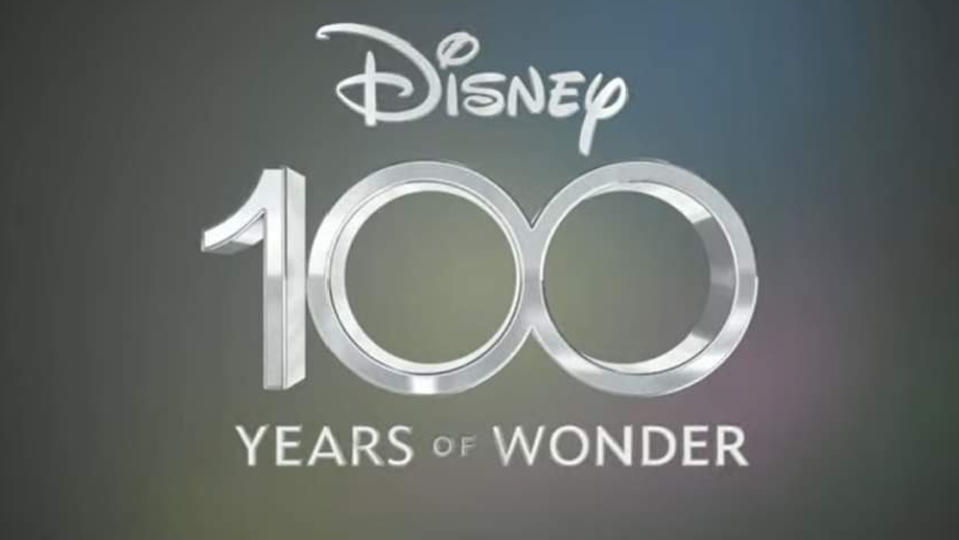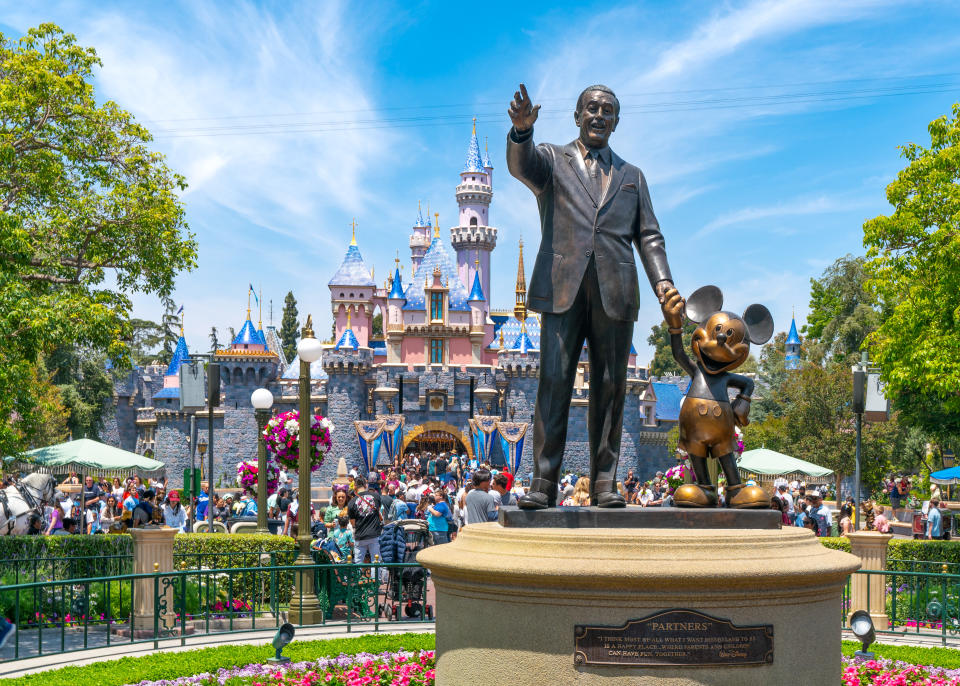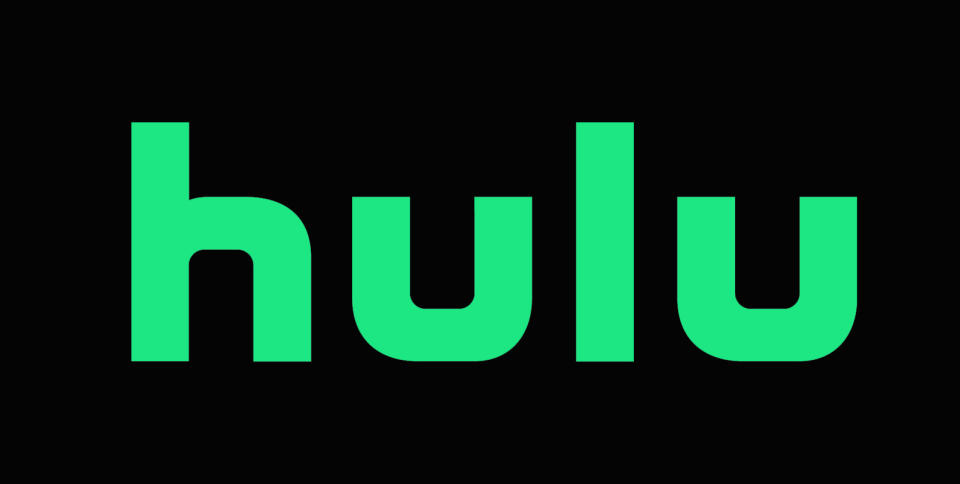Bob Chapek Details Disney’s Next Big Move, The 100th Anniversary, ESPN & Hulu’s Futures, & Bringing “Everything Together”
- Oops!Something went wrong.Please try again later.
- Oops!Something went wrong.Please try again later.

Bob Chapek won’t talk about whether an Encanto sequel is coming or not, but the Disney CEO makes it clear he has some very big plans for the company as it heads into its 100th anniversary in 2023.
“We call it next-gen storytelling,” Chapek said backstage at the D23 Expo in Anaheim on Saturday about what has been called Disney’s metaverse future by the man himself in a memo earlier this year. “We tend not to use the M word too often, because it has a lot of hair on it,” the enthusiastic exec adds mere minutes after the sprawling Lucasfilm and Marvel presentations had concluded at the confab.
More from Deadline
“But yes, Disney+ will not just be a movie service platform, but it’s going to become an experiential lifestyle platform. A platform for the whole company to embody both the physical things that you might be able to experience in a theme park, but also the digital experiences that you can get through media.”
While talk of Disney’s next step has been in the ether for several months (and ex-SVP of consumer experiences and platforms Mike White was promoted to run point on the initiative), Chapek has mostly been quiet publicly about the true scope and scale of the company’s next big move until now.
More than 30 months after being named as CEO, Chapek has weathered the slings, arrows and near-empty coffers of the pandemic, some hard decisions, some disruptive decisions to put it mildly, and more than one political trial by fire. Having inked a new contract in June, he now finds himself overseeing a healthy stock, surging theme-park attendance, a greater than expected streaming subscriber base, a full pipeline of content across the board and a lot of cash on hand.

Leaning into Disney’s big celebration next year, Chapek today outlined where he wants to see the company go over the next decade or so. Talking with Deadline, the longtime House of Mouse employee also laid out some of his cards when it comes to the importance of ESPN and sports to the Disney empire, the future of Hulu, and the next big challenge for the entertainment industry.
DEADLINE: D23 is the kickoff to Disney’s 100th anniversary, a fact you were clearly pumped about on stage yesterday. So, what does that mean to you as the CEO right now?
CHAPEK: First of all, to work at the Walt Disney Company is a privilege in any capacity, but to be here 30 years and to be given the opportunity to run this company is a pinch-me sort of life experience.
DEADLINE: Really?
CHAPEK: Yes. Sometimes I still have to ask myself, am I really here doing this? But then you add in the third dimension, which is you’re doing this at the time where the company turns 100. And I say to my staff all the time: Do we all realize we happen to be at, in our opinion, the greatest company in the world at a time where we’re going to be able to celebrate the 100th anniversary?
It’s an alignment of the stars, and I feel like I’m the luckiest person on Earth to be able to be here. But it’s also tremendous responsibility because I’m seeing this as our opportunity to advance the company to celebrate what made this company what it is and the legacy of it all. We do appreciate the past, but we also know that we don’t want to become dinosaurs.
DEADLINE: When you were speaking at the Legends ceremony on Friday, you dropped a little bit more of what seemed like a serious next phase for the Walt Disney Company. You said Disney+ and some of your other platforms, we are going to make things interactive. This has been floating around for a while — you even brought Mike White on board to facilitate it — but is the metaverse the future of Disney?
CHAPEK: (laughs) We call it next-gen storytelling. We tend not to use the M word too often, because it has a lot of hair on it. But yes, Disney+ will not just be a movie-service platform, but it’s going to become an experiential lifestyle platform. A platform for the whole company to embody both the physical things that you might be able to experience in a theme park, but also the digital experiences that you can get through media.
DEADLINE: That sounds like a very big swing, but how does it work on a practical level?
CHAPEK: Here’s how. So, we wish every person would have the opportunity to come to our parks, but we realize that’s not a reality for some people. In order to reach the 90% of people that will never ever be able to get to a Disney park, we have before us an opportunity to turn what was a movie-service platform to an experiential platform and give them the ability to ride Haunted Mansion from a virtual standpoint. The utility isn’t just to have the same experience. Maybe we’ll give them the opportunity what every single person in the park wants to do, and unfortunately too many of them do it, just to get off the attraction. See how it works, see how those ghost dancers move…
DEADLINE: Are we talking about something with goggles, like Oculus?
CHAPEK: Short term, yes. Long term maybe not, maybe something more.
DEADLINE: How?

CHAPEK: We want to give people the ability to experience digitally, something that’s akin to a physical experience that they necessarily can’t be at that place in that time. But it’s even more important than that. So, when a family comes to our parks, we know exactly what you did. Let’s say you stay a week. We got seven days, 24 hours a day. We know everything that you do in the park. And if you give us the permission and ability through the membership app, we’ll program your Disney+ experience, not according to what you watched last or what other people who watch this show, but to what you did, what you experienced.
DEADLINE: That’s a real A.I. algorithm, next-level stuff.
CHAPEK: Bingo! And that’s what we aspire to do. That’s why we call it Next Generation Storytelling.
Now, when I speak to Kevin Feige or Kathleen Kennedy, or Sean Bailey, that’s what we talk about. Those conversations are now about how do we unbridle our storytelling to unleash a new dimension? It’s a third dimension of the canvas, so that you can start understanding what tools are available from a technology standpoint. How you can use those as an arsenal, like a different paintbrush, right? Telling stories in that third dimension brings everything together.
DEADLINE: How far along are you on this?
CHAPEK: We are in the very embryonic beginnings of this. I would say it’s akin to lab experiments that do proof of concept. When I talked to you about being in an attraction and being able to get off and check things out like that animatronic figure that looks like Jack Sparrow. Let’s go check them out from 360 degrees interact with Jack Sparrow. That’s the ultimate expression. Today, we’re working towards that.
DEADLINE: Corporately, how will it play out?
CHAPEK: You notice when we did our reorganization, we have two business units. We have one that’s physical and we have one that’s media/digital. That was very intentional, because now there’s just two points we need to connect.
DEADLINE: To that end, with plans afoot to buy out Comcast’s stake in Hulu by 2024, and with more mature content on Disney+, in a world of consolidation, why aren’t Disney+ and Hulu becoming one streamer?

CHAPEK: The answer is partially in your question. Right now we don’t have the ability to make them one because we don’t have the rights. We don’t have full ownership of Hulu.
DEADLINE: But that’s just a matter of time…
CHAPEK: Okay, but the question is, what will they be in the future? If you go to Europe, we don’t have such constraints. You’ll see that Star brand, which is general entertainment, is a six-brand tile on Disney+, How many problems have we had there because of that? (Chapek made a zero symbol with his right hand at this point.)
So, the question would be what would happen when we have full ownership of our general entertainment platform? And the answer to that question is whatever the consumer wants it to do. We will be guided by today’s consumers understanding and desires for the elasticity of Disney as opposed to something that may be in some people’s minds of what Disney was 50 years ago. I will tell you this, it is much more elastic than any of us ever imagined it could be.
DEADLINE: In that, there’s the big ticket for all entertainment companies, sports …

CHAPEK: There’s a reason why we love ESPN. There’s actually several reasons…
DEADLINE: I would say it was things like the U.S. Open semifinal last night…
CHAPEK: (laughs) That would be one of them, for sure. But there’s so many dimensions of sports and we’re passionate about it, and we have a plan. But let me tell you this, when the world thought that maybe ESPN was for up for grabs, we got at a lot of inquiries, either to myself or our CFO, from other entities.
DEADLINE: Who?
CHAPEK: I have to say as broadly as I can, other entities asking if we were willing to sell it to them. That says something about the power of sport and the advertising business when you’ve got that large of an audience that has to watch it at that moment. News and sports are the only two things that you have to watch at that moment. So, if you happen to have a vision for the future that the rest of the world’s not necessarily in tune with yet, then you keep ESPN. You keep ESPN, and you have a full complement of general entertainment, family news, sports that no other entertainment company can touch.
DEADLINE: Some corporate sporting events for a sec. Every CEO comes into their job wanting to put their map on it.
CHAPEK: True ..
DEADLINE: You will be the CEO for the 100th anniversary, a very nice place to be, as you said. But, you got the job and then the pandemic began, knocking everything and everyone off their feet with a once-in-a-lifetime situation. What’s your perspective on the last two years now, the first two years of you running Disney?
CHAPEK: It was once-in-a-lifetime situation, for sure, the pandemic
It was a time also when we realized that the amount of content investment our company was going to need to have a full expression of what it was going to take this satiate our opportunities theatrically and on linear television, but also for our streaming services, was so much greater than we ever anticipated. So, the need to spend the money to fill those pipes was greater than we thought at a time where we had no money coming in, and we had a tremendous amount of debt that we took on because of the Fox acquisition that we now had the debt service on.
So, we did two things.
We had to take titles that were never envisioned to go into streaming because the cinemas were shut down. That’s not how they were originally envisioned, but it was our only option, and plus we had a huge need. But now, we used that time to fully plan out what the content would need to be and by the way, fully enabled by our new distribution organization, which is made for this. It’s made for this type of complicated world.
DEADLINE: So, when will we see the fruit of those seeds?
CHAPEK: We feel like we’re going to hit our full speed of expression in the next year, as we have content now. You notice how proud people were in the Lucasfilm and Marvel event today at D23, how proud they were to say my content is coming to Disney+ and it’s coming to Disney first.
DEADLINE: With all the contraction some studios and streamers are experiencing, and the expansion you are talking about, what do you think’s the big challenge for the industry, and how are you positioning Disney for it?
CHAPEK: Challenge from an industry standpoint?
DEADLINE: Yeah.
CHAPEK: We as an industry create content. It’s cultural in its nature. The world is not homogeneous. The world is very heterogeneous.
We, I mean Disney, have different expectations from our employees. We have different expectations from our investors. We have different expectations from our consumers. So, you’ve got this three-dimensional matrix of what people want, but when you put on a movie or a piece of content, it’s only one thing, at least today. We’ve got this tremendous diversity of opinions on what it should be. I think the next horizon is how do we as an industry stand for what we believe is right.
DEADLINE: In all that has occurred over the past two years, how do you define that?
CHAPEK: We say we’re a family company. We are, but we’re for all families, regardless of how they define themselves. Right? Disney is a place that unifies people. We’re all there for a shared belief of a better tomorrow. It’s magical, yes, but I also think it’s an idealistic goal. It’s a goal for the world to be brought together. So to answer your question specifically about Disney: we want Disney to be a grand unifier.
Best of Deadline
NFL 2022 Schedule: Primetime TV Games, Thanksgiving Menu, Christmas Tripleheader & More
The Queen Onscreen: 15 Actresses (And Actors) Who've Played Elizabeth II In Film And On TV
'Blonde' Premiere Photo Gallery: Ana de Armas Channels Marilyn Monroe At Venice Film Festival
Sign up for Deadline's Newsletter. For the latest news, follow us on Facebook, Twitter, and Instagram.

